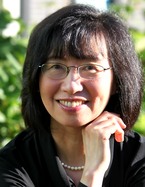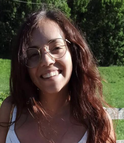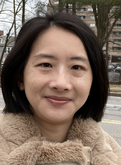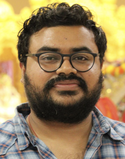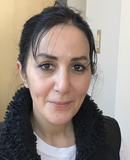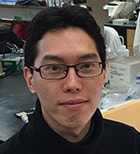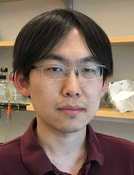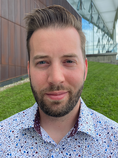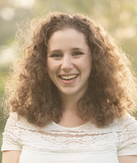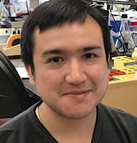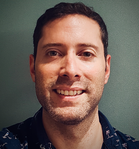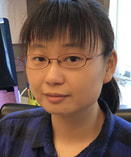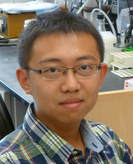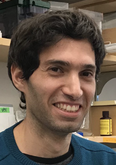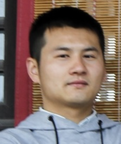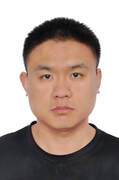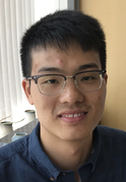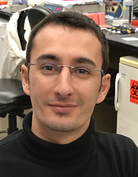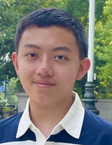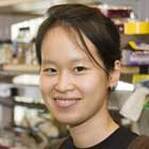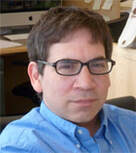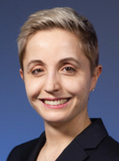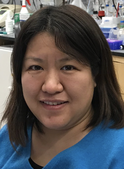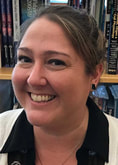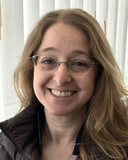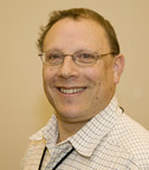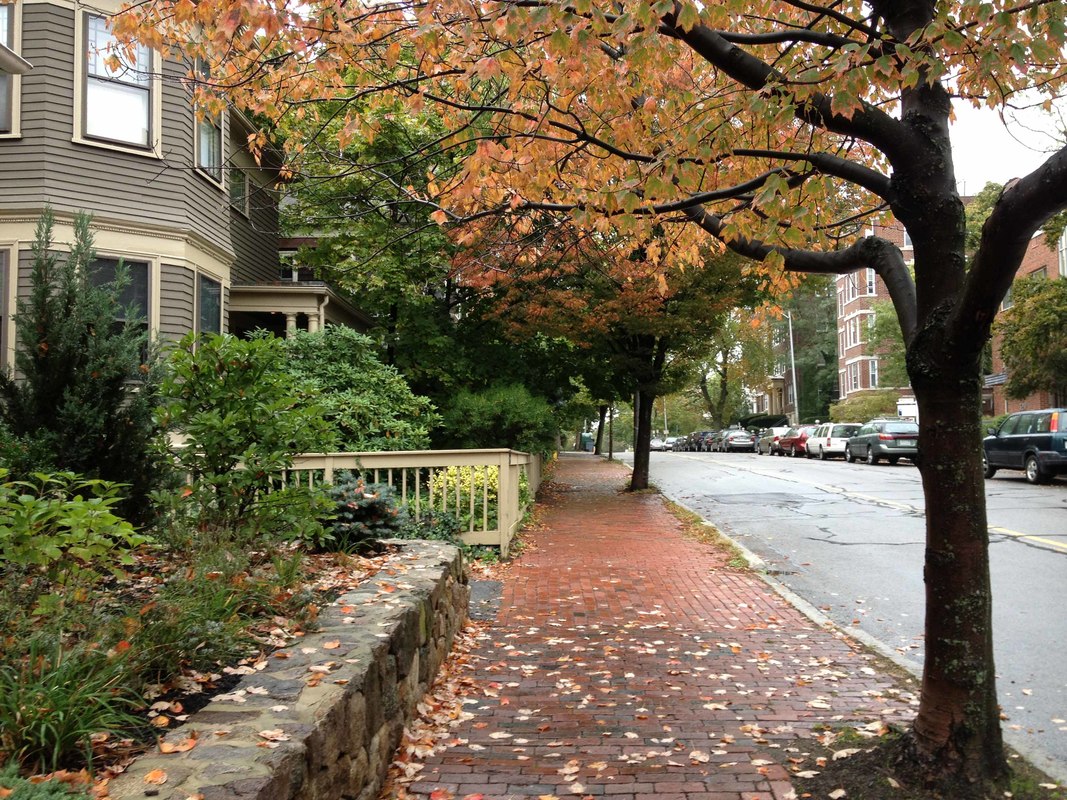Current lab members
Principal investigator
|
|
Jeannie T Lee, MD PhD
The Phillip A. Sharp, PhD, Endowed Chair in Molecular Biology Lee is Professor of Genetics (and Pathology) at Harvard Medical School, Chair of the Department of Molecular Biology at the Massachusetts General Hospital, and Vice Chair of the Department of Genetics at Harvard Medical School. Dr. Lee specializes in the study of epigenetic regulation by long noncoding RNAs and uses X-chromosome inactivation as a model system. She is a Member of the National Academy of Sciences and the National Academy of Medicine, a Harrington Rare Disease Scholar of the Harrington Discovery Institute, a recipient of the Lurie Prize from the Foundation for the National Institutes of Health, an awardee of the Centennial Prize from the Genetics Society of America, the 2010 Molecular Biology Prize and the 2020 Cozzarelli Prize from the National Academy of Sciences, U.S.A, and a Fellow of the American Association for the Advancement of Science. Dr. Lee was also named a Distinguished Graduate of the University of Pennsylvania School of Medicine and an Investigator of the Howard Hughes Medical Institute. From 2013-2018, she co-launched the Epigenetics Initiative at Harvard Medical School and served as its Co-Director. Serving on the Board of Directors of the Genetics Society of America (GSA), Dr. Lee spearheaded the TAGC (The All-Genetics) Conference in 2016. As GSA's President, Dr. Lee established a Strategic Plan and a Development strategy for the society in 2018. She received her A.B. in Biochemistry and Molecular Biology from Harvard University and obtained M.D.-Ph.D degrees from the University of Pennsylvania School of Medicine. Dr. Lee carried out postdoctoral work at the Whitehead Institute & MIT and was Chief Resident of Clinical Pathology at the Massachusetts General Hospital prior to joining the Molecular Biology Faculty at MGH & Harvard Medical School. |
Research Fellows
|
Silvia Ceschi, PhD
After completing my bachelor’s and master’s degrees in Pharmaceutical Chemistry at the University of Padova (Italy), I joined the lab of Dr. Claudia Sissi to conduct biophysical and biochemical characterizations of G-quadruplex DNA secondary structures (G4s), their complexes with proteins and selected small molecules, and also study genomic mapping of vimentin-G4 repeats interactions. Fascinated by the potential role of G4s in the establishment of chromatin architecture, I joined Dr. Lee's lab to explore the involvement of G4s in Xist RNA biology. |
|
Chloe Wei-Ju Chen, PhD
I obtained my Ph.D. degree in Genome and Systems Biology from National Taiwan University in collaboration with Academia Sinica. During my doctoral studies, under the mentorship of Professor Jean Lu, I conducted research on stem cell pluripotency/totipotency utilizing human pluripotent stem cells and a mouse embryo model. Driven by a profound interest in the role of the X chromosome in health and disease, I subsequently joined the Lee Lab. In this research environment, my focus shifted to the investigation of DNA repeat disorders, with a particular emphasis on fragile X syndrome. |
|
Priyojit Das, PhD
After completing both my bachelor's and master’s degrees in computer science and engineering from India with a focus on quantitative biology research, I joined the Genome Science and Technology graduate program at the University of Tennessee, Knoxville. There, I pursued my doctoral research under the supervision of Dr. Rachel Patton McCord. In the McCord lab, I studied the structural and dynamical properties of the chromosome structural ensemble and how those properties are altered due to different perturbations and diseased conditions. By the end of my PhD, I also acquired interest in understanding the role of different biomolecules in the shaping of the 3D genome. And that motivated me to join the Lee lab, where I am working on characterizing the contribution of different types of RNA molecules in the formation and regulation of 3D genome structure. |
|
Bahareh Haddad Derafshi, PhD
Having completed my Ph.D. in Stem Cell Biology and Regenerative Medicine in Marius Wernig`s lab at Stanford University, I developed an immense interest in features of chromatin regulation in neural tissue development. I studied SWI/SNF-dependent regulation of ‘active’ chromatin in excitatory neural cell type specification and function. I discovered a kinase signal sensing pathway that regulates chromatin structure and fosters the progression of autism disease. In the Lee Lab, I am studying mechanisms of RNA-guided chromatin factor function that play a role in regulation of chromatin compartmentalization and the crucial aspects of enhancer-promoter communication with the outlook of discovering the earliest features of tissue-specific genome activity. Ultimately, understanding the role of chromatin-associated 'architectural' RNA molecules and cofactors provides a blueprint for site-specific activation of chromatin and transcription factors and is a powerful paradigm in tissue-specific gene regulation, and I am excited to lead the journey of groundbreaking discoveries in this field with the Lee Lab. |
|
Hungoo Lee, PhD I received my Ph.D. degree in Molecular Biology and Biochemistry from Rutgers University. During my Ph.D. I studied the epigenetic regulatory roles of Polycomb/Trithorax group proteins in Drosophila under the guidance of Dr. Vincenzo Pirrotta. I joined the Lee Lab as a postdoc to explore the potential functions of non-coding RNAs in diverse epigenetic processes by interacting various chromatin modifiers. |
|
YongWoo Lee, PhD
I received my Ph.D. in Dr. WooTeak Kim’s lab at Yonsei University, where I studied telomere biology in plants. After the Ph.D. training, I had spent a few years in Dr. Claus Azzalin’s lab as a junior post-doc to investigate the roles of telomeric long non-coding RNA TERRA in safeguarding telomere integrity. As an extension of my continuous interest on TERRA, recent findings on TERRA transcribed from the pseudoautosomal subtelomeric regions (PAR-TERRA) leads me to Lee lab to explore fascinating possibilities of long non-coding RNA mediated long-range genomic interactions. |
|
Tyler Mrozowich, PhD
I am from Lethbridge, Alberta, Canada — a small city, approximately a 2h drive south of Calgary, AB, or 2h drive north of the Montana/Alberta border. I finished my BSc in Biochemistry at the University of Lethbridge in the Fall of 2017 and immediately started my MSc in Dr. Trushar Patel's research lab at the University of Lethbridge. From there, I transferred from my MSc to a PhD, which I defended in April 2023. My Ph.D. is in Biomolecular Science with a concentration in Biophysics where I focused on the biophysical characterization of non-coding RNA. In the Lee Lab, I am working towards elucidating the 3-dimensional structure of XIST and probing the structure with small molecules. |
|
Pe'era Wasserzug-Pash, PhD
I pursued graduate studies at the Hebrew University, where I examined how epigenetic function in the oocyte affects its cellular competence and growth. As a Research Fellow in the Lee Lab, I am investigating how the oocyte epigenome establishes the foundation for the embryo's development, concentrating on the mechanisms that control maternal imprinting patterns on the X chromosome. |
|
Carlos Rivera, PhD
I received my M.S. degree in Biochemistry from University of Chile, where I worked with Dr. Alejandra Loyola studying the protein complexes that process newly synthesized histones H3 and H4. I then received a PhD in Cellular and Molecular Biology in Pontifical Catholic University of Chile, where I work with Dr. María Estela Andrés focusing in the chromatin binding properties of CoREST complexes in collaboration with the Lee Lab. After receiving the Hermann Niemeyer 2018 prize by the Chilean Society for Biochemistry and Molecular Biology, I came to Dr. Lee’s Lab to focus on mechanisms that spread noncoding RNAs. |
|
Nicolas Simonet, PhD
I received my bachelor´s degree in Biochemistry from Andres Bello University (Santiago, Chile), where I studied the epigenetic mechanism involved in rRNA synthesis during seasonal acclimatization of the carp fish. During my Ph.D. under the guidance of Dr. Alejandro Vaquero (Barcelona, Spain), I explored the enzymatic duality of Sirtuins and its functional link on chromatin under glucose starvation and calorie-restricted mice. Given my strong interest in understanding how Sirtuins promotes genome stability and gene expression, I joined Dr. Lee’s Lab to study Sirts and Xist-mediated Polycomb recruitment on the inactive X chromosome. |
|
Danni Wang, PhD
I received my PhD degree in Molecular and Cellular Biology from New York University, where I studied the transcriptional position effects of ribosomal DNA array in S.cerevisiae under the supervision of Dr. Andreas Hochwagen. With my continued interested in epigenetics and chromatin biology, I joined the Lee Lab as a postdoc to study the molecular mechanisms of X chromosome inactivation. |
|
Chunyao Wei, PhD
I completed my undergraduate studies at University of Science and Technology of China, and earned my PhD under the guidance of Dr. James Patton at Vanderbilt University, where I studied the expression and functions of microRNAs during early zebrafish embryonic development. With a continued strong interest in noncoding RNAs (ncRNAs), I joined Dr. Lee's lab as a postdoctoral fellow to study potential roles of small ncRNAs in X-chromosome inactivation and their interactions with long ncRNAs. |
|
Uri Weissbein, PhD
I received my PhD in Genetics from the Hebrew University of Jerusalem, where I study the genetic and epigenetic instability of human pluripotent stem cells, and the effect of this instability on cells growth and tumorigenicity, under the guidance of Prof. Nissim Benvenisty. At my postdoc at the Lee Lab, I plan to study the importance of noncoding RNA in epigenetic regulation of gene expression and chromatin architecture, focusing mainly on transcripts from the repetitive elements. |
|
LiLei Xu, PhD
I was born and raised in South China and in January 2023, I obtained my Ph.D. from Tsinghua University. Throughout my Ph.D. training, I specialized in the field of structural biology and RNA biology, delving into the intricate mechanisms behind bacterial responses to varying cellular conditions through the utilization of riboswitches. Presently, I am actively engaged in research within the Lee Lab, where my primary focus lies in exploring the structure-function relationship of non-coding RNAs. |
|
Shengze Yao, PhD
I received my BS and PhD from Peking University, China, where I studied miRNA transcriptional regulation of rice viruses by rice plants, under the guidance of Prof. Yi Li. In Dr. Lee’s lab, I will focus on the localization of Xist on the X-chromosome and underlying molecular mechanisms. |
|
Antonino Zito, PhD
I completed my BSc and MSc at the Univ. of Palermo, in Sicily. I carried out my MSc research project at the Bioinformatics Unit at the IOR, in Switzerland. Supervised by Drs. I.Kwee and F.Bertoni, I analysed microarray data to explore the genetics of chemoresistance of haematological malignancies. I earned my PhD in Genetics at King's College London under the guidance of Dr. Kerrin Small. I used RNAseq & DNAseq data to study the influence of genetics and environment on chrX patterns in twins. I joined the Prof. Lee Lab at Harvard as a Research Fellow. I will use bioinformatics and experimental genetics to investigate X-linked neurobehavioral and clinical traits. I love the countryside and engines, and enjoy reading the Italian comics series 'Tex Willer'. |
Graduate Students
|
Niklas Grimm
I completed my B.Sc. and M.Sc. in Vienna, Austria, and Liverpool, United Kingdom, respectively. In Liverpool, I was researching exercise-related proteomics in the lab of Professor Jatin Burniston, and alternative models of molecular pathogenesis in facioscapulohumeral muscular dystrophy in the lab of Professor Claire Stewart. I am very interested in epigenetics, the non-coding genome, and how chromosome architecture regulates transcription. I joined the Lee Lab to research the mechanisms of X chromosome inactivation, apply the mechanistic understanding to develop therapeutic interventions in X-linked diseases, and elucidate the contribution of X-linked mutations to autism spectrum disorders. In my spare time, I like to learn about microbiota, read classics (especially Dostoevsky), and go running. |
|
Yu-Ting Huang
I received my undergraduate degree at UC San Diego, where I investigated structural and functional evolution of ribozymes with Gerald Joyce at the Salk Institute. I am excited to join the Lee lab for my Systems Biology PhD degree to learn more about non-coding RNA involved in X-inactivation. In my spare time, I enjoy spending time with my cat, Roco, and traveling around with family and friends. |
UNDERGRADUATES
|
Nicole Asiryan
I am currently an undergraduate at Harvard University concentrating in Human Developmental and Regenerative Biology with a double in Slavic Languages and Literatures on the premedical track. In the Lee Lab, I am investigating possible therapies for CDKL5 Syndrome. In my free time, I enjoy figure skating, trail running, and exploring the city with my friends. |
|
Henry Ma
I am an undergraduate at Harvard University, raised in Easton, MA, intending to pursue a joint concentration in Molecular and Cellular Biology with Sociology. Currently, my research focuses on investigating the effects of the deletion of the long noncoding RNA Jpx on X-chromosome inactivation. In my free time, I enjoy taking photos on nature walks, playing video games, and making/listening to music. |
|
Vicky Yan
I am an undergraduate at Harvard originally from New York City, intending to concentrate in Human Developmental and Regenerative Biology. I'm excited to study the role of noncoding RNAs in X-chromosome inactivation, and how to reverse this mechanism for therapeutic benefit in X-linked disorders. Outside the lab, I like watching birds, reading books, and learning new languages. |
INSTRUCTORS, RESEARCH ASSOCIATES & Specialists
|
Roy Blum, PhD
Bioinformatics Specialist I graduated with honors from the Neurobiology department at the Tel Aviv University, Israel, where I studied with Prof. Yoel Kloog the anti-cancer therapeutical potential of Ras inhibitors. For my first postdoctoral position I joined the laboratory of Prof. Elaine Wilson at NYU School of Medicine, and characterized the transcriptome of fetal and adult prostate stem cells in their physiological niche. My second postdoctoral position was at the group of Prof. Brian Dynlacht at the NYU Cancer Center, where my research focused on investigation of genome-wide remodeling of epigenetic landscape during myogenic differentiation. I then joined as a senior research scientist to work in the laboratory of head of NYU cancer center, Prof. William Carroll. My studies explored epigenetic mechanisms leading to relapse of pediatric acute lymphoblastic leukemia. At Jeannie Lee's lab I serve as a bioinformatician and apply my background in big data analysis to a variety of genome-wide studies conducted by the lab members. |
|
Yesu Jeon, PhD
Instructor I received both my undergraduate and graduate degrees from Seoul National University in Korea, where I spent most of my time working on DNA replication and cell cycle regulation until I joined the Lee Lab. I am currently interested in chromosome dynamics during and after X-chromosome inactivation (XCI). |
|
Barry Kesner, PhD
Bioinformatics Specialist I graduated from the Cell and Developmental Biology graduate program at the University of North Carolina at Chapel Hill and more recently completed a post-doc in the Gene Therapy Center at the same university. My specialty is protein functional characterization using structural dynamics and phylogeny. I am currently analyzing NGS and Gene Chip data as a bioinformatician. |
|
Anna Lappala, PhD
Instructor in Computational Biology I received my PhD from the Department of Physics, University of Cambridge, where I studied polymer physics under Professor Eugene Terentjev. A theoretical polymer physicist by training, I joined Los Alamos National Laboratory as a post-doctoral Center for Nonlinear Sciences Fellow, where I worked on non-equilibrium and biology-inspired problems. One such problem, the spatial organization and dynamics of chromosomes, leads to a fruitful and exciting collaboration with the Lee Lab. |
|
Yuka Takeichi, PhD
Instructor I received my PhD in Veterinary Medicine at Hokkaido University in Japan, where I studied meiotic recombination and pairing in mice. Since then I have been interested in mouse disease models and translational research. I joined the lab to work on treatments for X-linked neurodevelopmental disorders like RETT syndrome and CDKL5. |
Indispensable crew
|
Christine Caruso
I graduated with a B.A. in Communications from The University of Massachusetts, Amherst. I joined The Department of Molecular Biology in 2014 and the Lee Lab in 2018. Currently, I am the Program Coordinator for the Department, including HR and Administrative Duties as well as Lab Admin for The Lee Lab. I am excited to be joining the Lee Lab and look forward to getting to know everyone! In my spare time, I enjoy gardening, especially my rose bushes, baking and traveling with my husband. |
|
Vered Levy, PhD
I received my Ph.D. in Developmental and Cellular Biology from The Hebrew University of Jerusalem and completed postdoctoral fellowship training at Harvard Medical School and Massachusetts General Hospital. My research experience includes Embryology, Skin biology and Human genetics of cardiovascular disease. I previously worked as Research Scientist at Dr. Kathiresan Lab, managing the Psychiatric & Neurodevelopmental Genetics Unit Genotyping Core Lab at the Center for Human Genetic Research. I am now Lab Manager in the Lee Lab. |
|
William Press
I have a B.Sc in Plant Science and Agriculture from The University of Nottingham School of Biosciences and an M.Sc. in Quality Systems Management from the National Graduate School, Falmouth MA. My research career includes the Developmental Biology Lab headed by Jerome Gross at MGH, The Epithelial Biology Lab headed by Carolyn C. Compton at MGH, Collagenesis Inc. a tissue engineering company based in Beverly, MA, The Harvard Gene Therapy Initiative directed by Richard Mulligan at HMS, The Alzheimer's Research Lab at MGH headed by Brad Hyman and BioView an automated FISH microscopy company based in Rehovot Israel. I will apply my diverse background to the efficient management of the lab's transgenic mice and other projects. I enjoy photography, biking, cooking and walking with Sebastian the family dog. |
